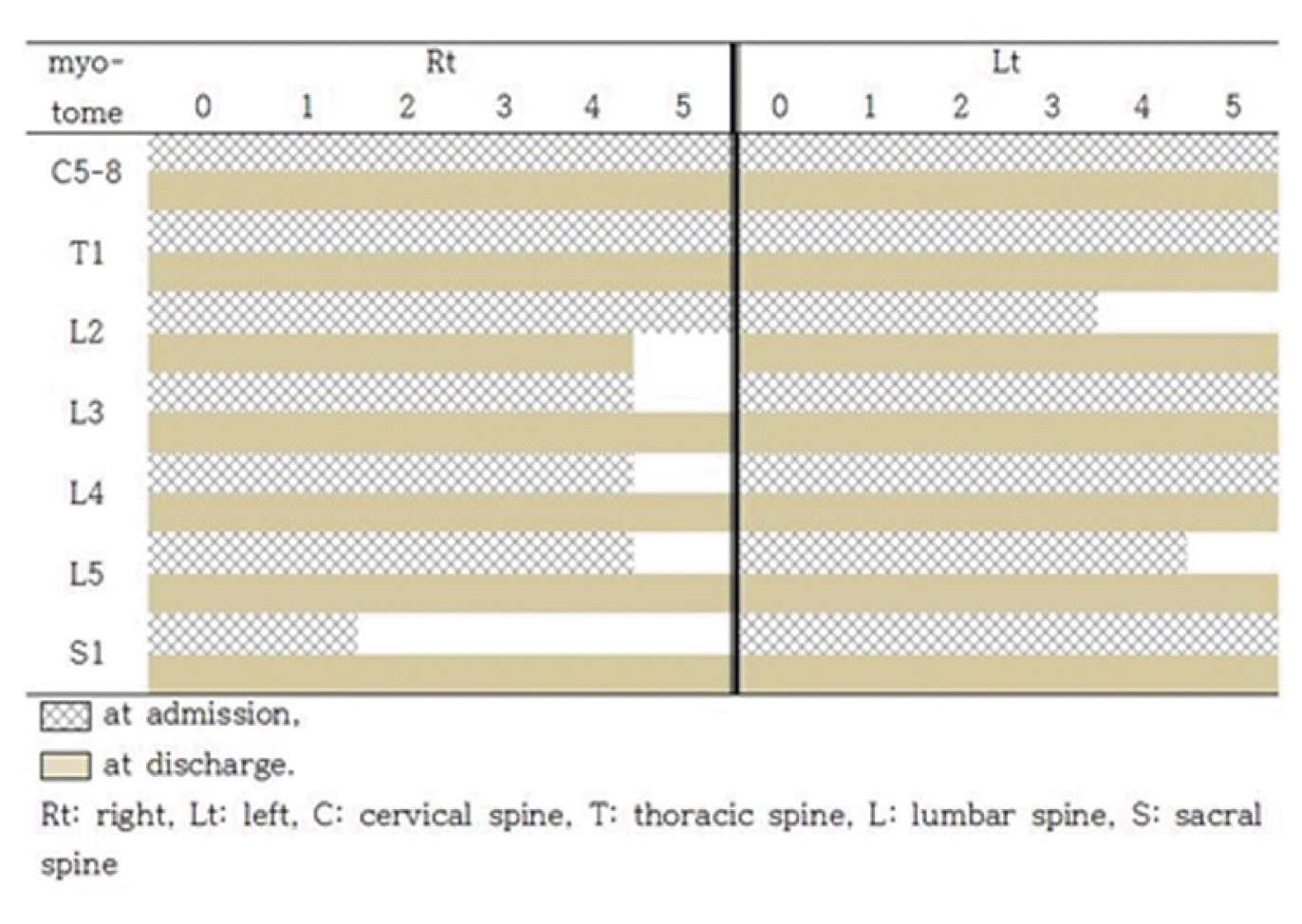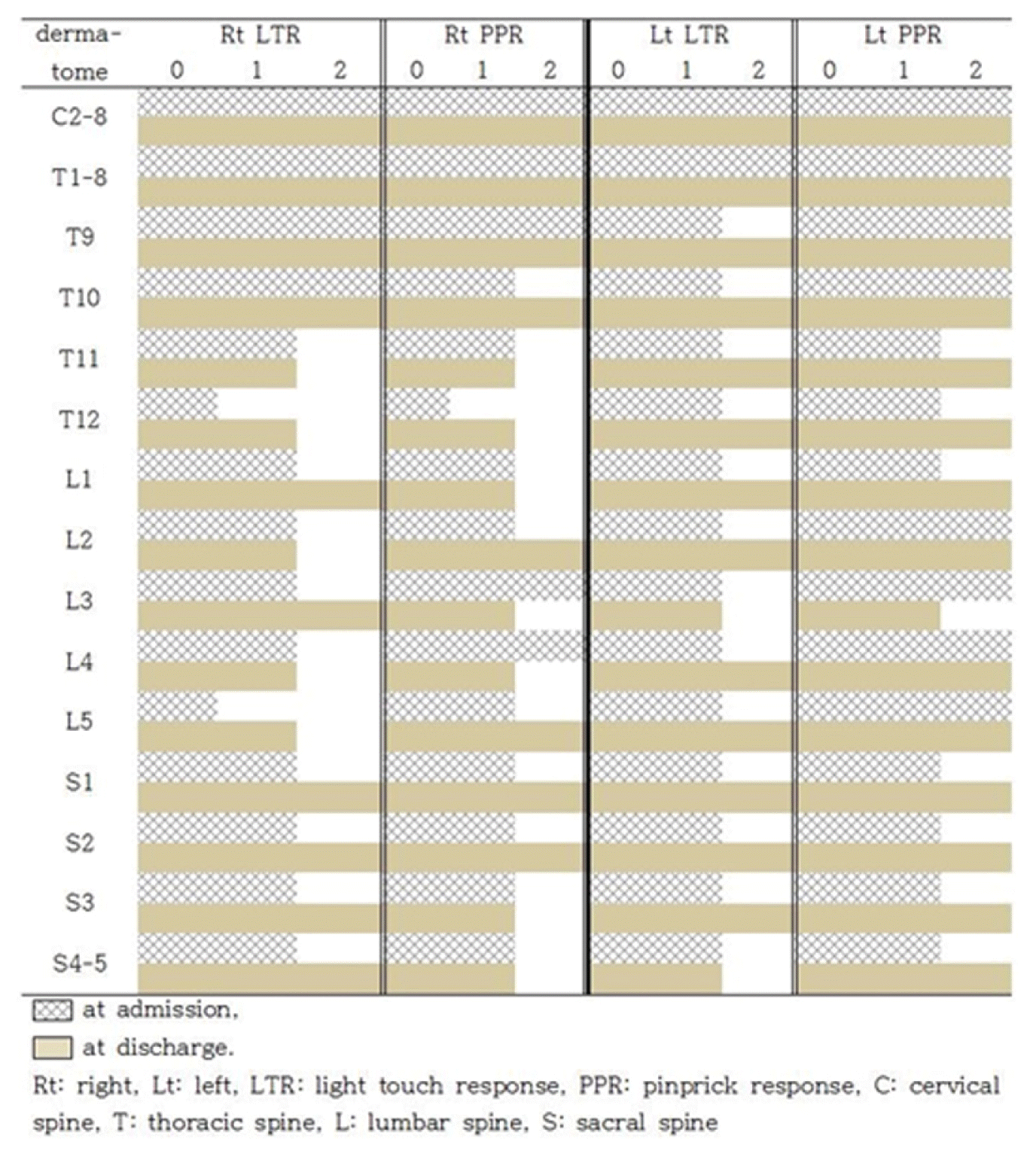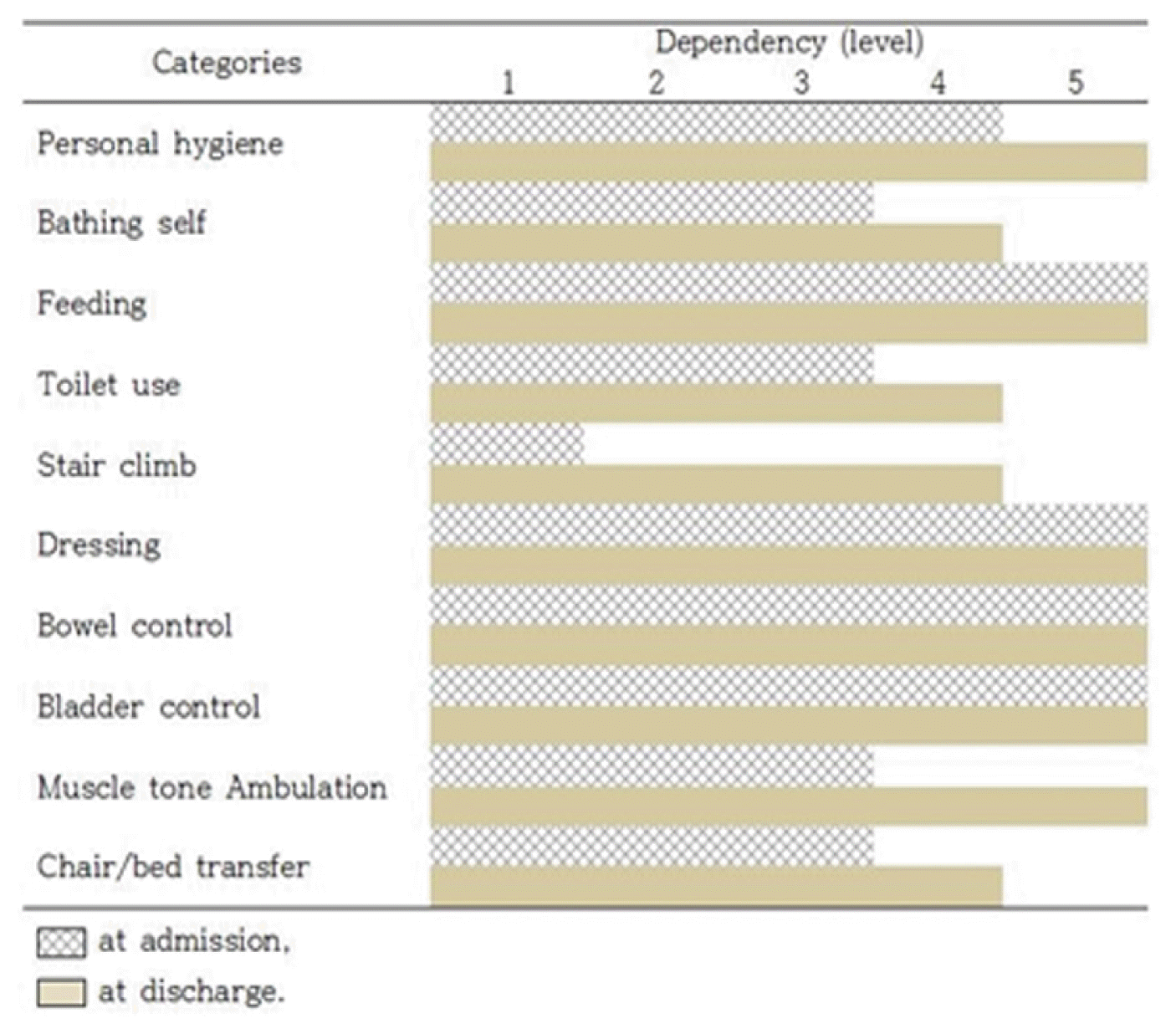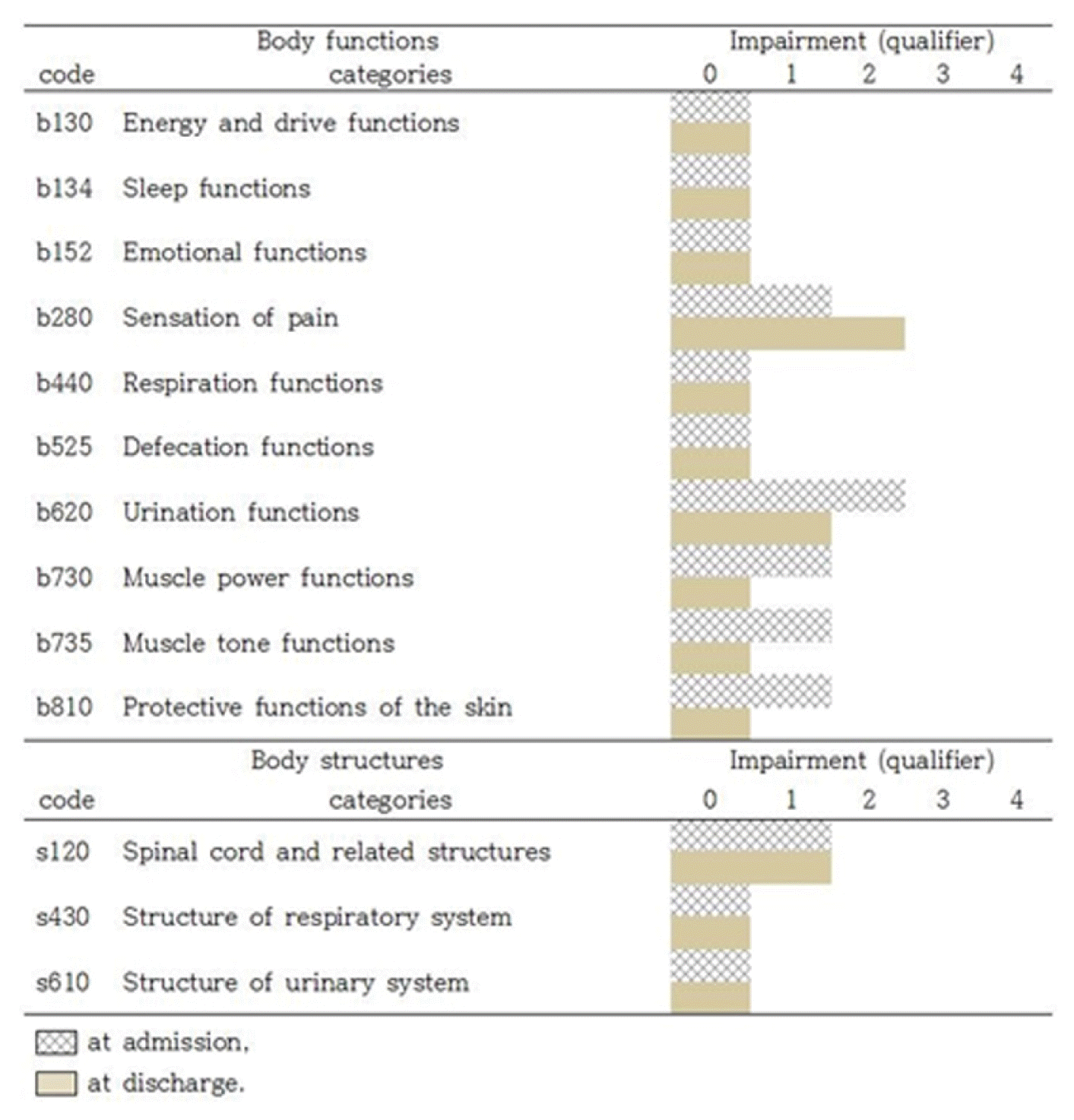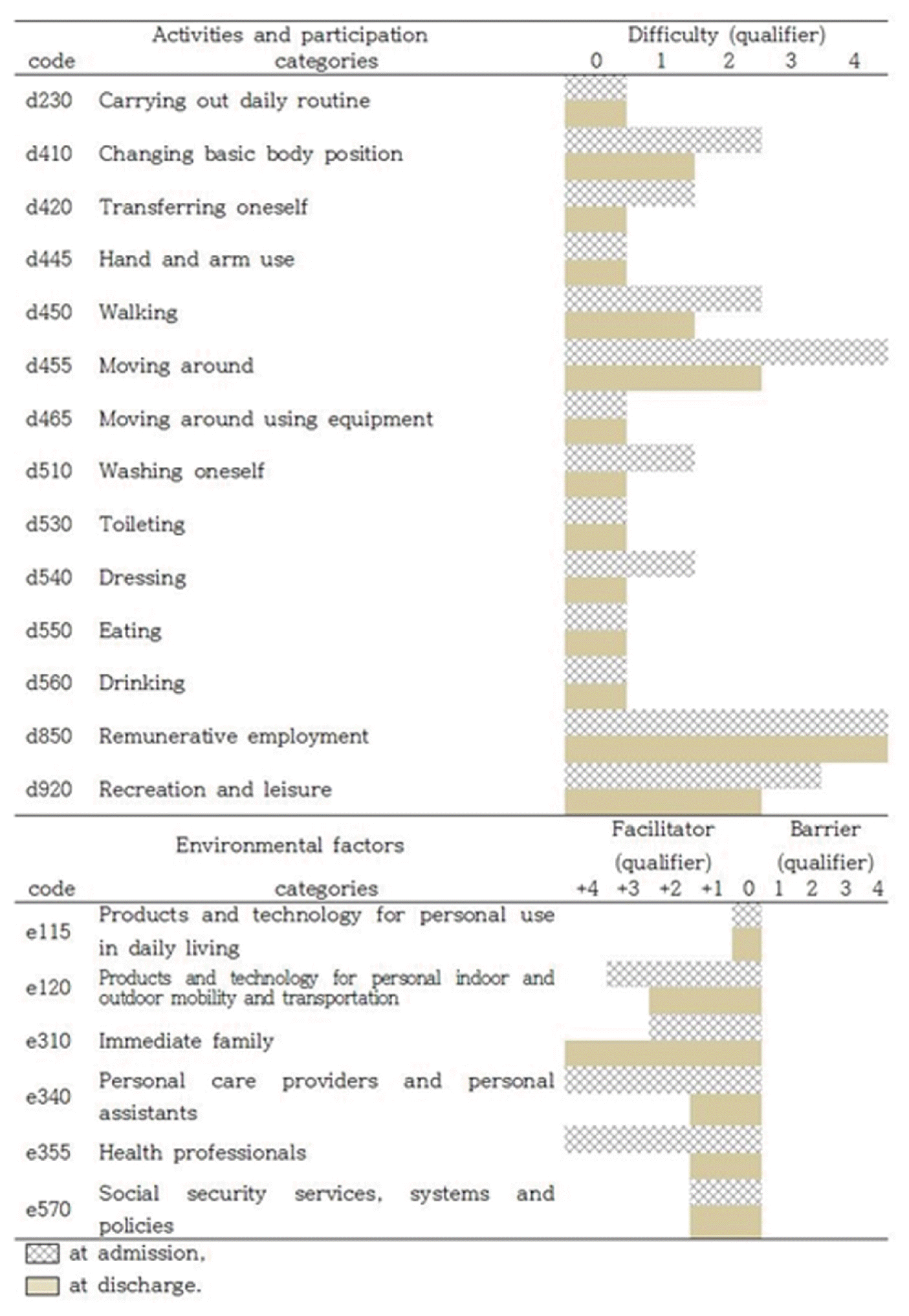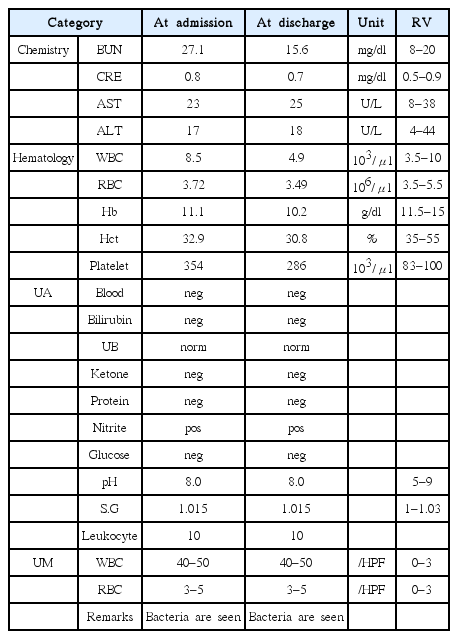A case report of a patient with spinal cord infarction treated by Korean medicine combined with conventional medicine: An evaluation using Korean Standard Classification of Functioning, Disability and Health (KCF)
Article information
Abstract
Objectives
Korean Standard Classification of Functioning, Disability and Health (KCF), a useful tool for a comprehensive consideration of the health-related overall implications, might be also promising way to validate the effectiveness of Korean medicine. This study reports the change of pre- and post-hospitalization using the KCF in a patient with spinal cord infarction who underwent rehabilitation plus Korean medicine treatment. This study aims to apply the KCF to this case, evaluate its applicability, and review its expected benefits and obstacles in the clinical practice of Korean medicine.
Methods
The changes in the overall health status of the patient were assessed by the KCF as well as the chief complaints, diagnosis, neurological deficits, and activities of daily living (ADL), impairment scale etc. before and after admission to a Korean medicine hospital were investigated.
Results
Most of the chief complaints of the patient were improved enough to perform her daily routine activities independently. These improvements were reflected in the neurological function and ADL scores, but could not change the diagnosis according to the Korean Standard Classification of Diseases nor the impairment scale. The KCF, on the other hand, was able to grasp the changes of the patient in various aspects in terms of body function, body structure, activity and participation, and environmental factors.
Conclusions
Through this case, we found the applicability of the KCF in clinical practice of Korean medicine and the possibility that the KCF can be a promising tool to show the effectiveness and benefits of Korean medicine.
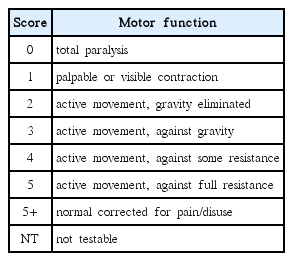
Motor Function Rating Scale of the International Standards for Neurological Classification of Spinal Cord Injury

